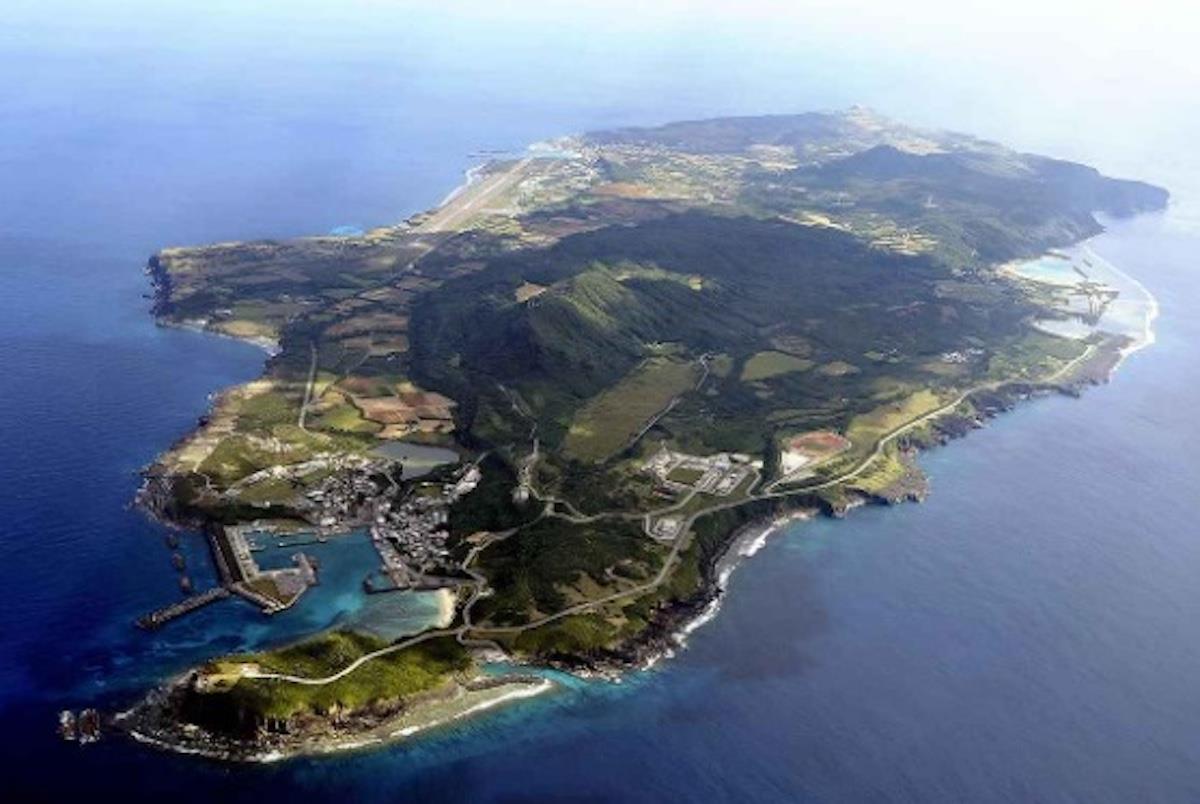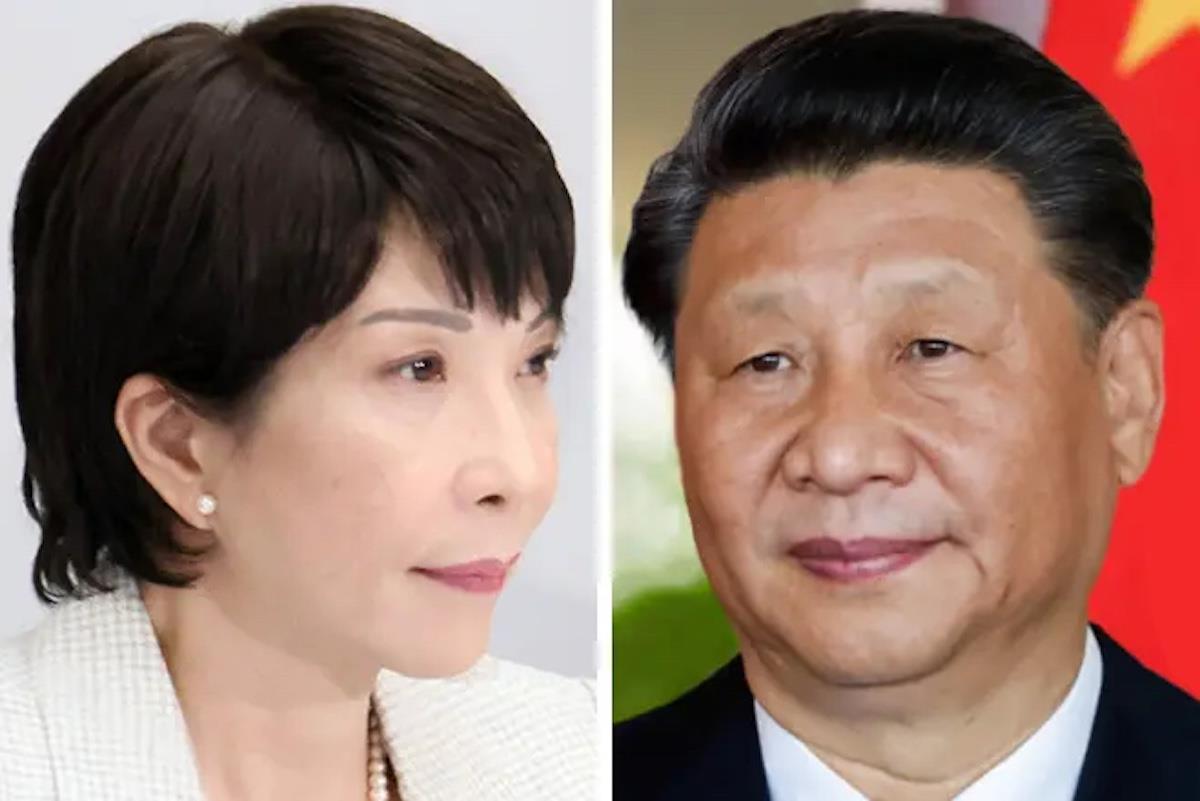
China And Japan Need To Take A Step Back From The Brink
This move confirms what regional observers have long feared: Asia's most dangerous flashpoint has expanded beyond the Taiwan Strait to include the southern reaches of Japan's island chain, where the security concerns of Japan, China and Taiwan dangerously overlap.
New Japanese Prime Minister Sanae Takaichi escalated tensions by warning that a Chinese military move against Taiwan could threaten Japan's survival and justify military action under its collective self-defense laws. Beijing condemned her remarks as a violation of the“one-China principle” and accused Japan of undermining regional stability.
In retaliation, China suspended Japanese seafood imports, issued travel and study warnings to its citizens, and restricted cultural and economic exchanges. Nationalistic Chinese commentators, which may or may not have Beijing's tacit support, have called for a rare earths ban on Japan, a potentially devastating blow to its tech, auto and other industries.
Latest stories
Japan's Yonaguni arming up for a Taiwan war with China

Weakest president in a century capitulates to America's old foe

Zelensky running out of time with Trump peace plan on the table
Despite Beijing's threats and demands, Takaichi refused to retract her statements, framing them as hypothetical and rooted in Japan's security concerns. The escalating row, meanwhile, has prompted Japan to advise its citizens in China to exercise caution.
For Tokyo, the Yonaguni deployment is framed as necessary and defensive. Japan's Defence Minister Shinjiro Koizumi has argued that strengthening the country's southern perimeter“lowers the chance of an armed attack.” That assessment reflects the more complex security environment shaped by China's military growth, rising tensions in the East China Sea and uncertainties over Taiwan's future.
From Japan's perspective, deterrence is prudence, not provocation. Yet geography rarely bends to political interpretation. Missiles placed so close to Taiwan will inevitably alter Beijing's strategic calculations.
For China, the missiles reinforce the narrative that Japan is aligning more openly with US and Taiwanese interests. For Taiwan, they may offer reassurance but also heighten the sense that its defense depends increasingly on a broader coalition, complicating any conflict scenario.
The result is a dangerously compressed environment where military assets, surveillance platforms and political signaling crowd the same narrow maritime and airspace. This confluence is rapidly making southern Japan the new epicenter of risk in the Indo-Pacific. Yet focusing only on the missiles misses a deeper danger: the accelerating breakdown of diplomatic trust.
Beijing has revived historical narratives questioning Japan's sovereignty over the Ryukyu Islands, which Tokyo interprets as creeping revisionism. Meanwhile, both publics have grown more entrenched, anxious, and susceptible to nationalistic rhetoric.
The region now stands one miscalculation away from confrontation-not because anyone seeks war, but because mutual recriminations are quickly replacing responsible diplomacy.
In such high-stakes moments with huge implications for the Indo-Pacific, mature and peaceful diplomacy is indispensable. Military deployments without open communication channels multiply the risk of misinterpretation.
Japan may sincerely see its Yonaguni missiles as defensive, but China may just as sincerely view them as escalatory. As nationalistic signaling intensifies in both capitals, positions are hardening on both sides.

Sign up for one of our free newsletters
-
The Daily Report
Start your day right with Asia Times' top stories
AT Weekly Report
A weekly roundup of Asia Times' most-read stories
Meanwhile, Asia's major and minor powers are deeply interdependent economically and strategically. Trade, supply chains, energy flows, and maritime safety all hinge on sustained cooperation and restraint. The wider region risks sleepwalking into crisis as Beijing and Tokyo's recriminations converge on southern Japan.
But the region does not have to become the flashpoint for Asia's next great power conflict. Japan, China, Taiwan, and the wider Indo-Pacific must resist the fatalistic logic of militarized rivalry and take a diplomatic step back from the brink. Strengthening defense is understandable, but restoring China-Japan dialogue is now essential.
Asia's future stability will not be decided by the number of missiles placed on Yonaguni, but by how wisely and peacefully leaders navigate the rising tensions around it.
Phar Kim Beng (PhD) is professor of ASEAN Studies and director of the Institute of International and ASEAN Studies (IINTAS) at International Islamic University of Malaysia (IIUM).
(Shawn W. Crispin edited this story from Bangkok.)
Sign up here to comment on Asia Times stories Or Sign in to an existing accounThank you for registering!
An account was already registered with this email. Please check your inbox for an authentication link.
-
Click to share on X (Opens in new window)
Click to share on LinkedIn (Opens in new window)
LinkedI
Click to share on Facebook (Opens in new window)
Faceboo
Click to share on WhatsApp (Opens in new window)
WhatsAp
Click to share on Reddit (Opens in new window)
Reddi
Click to email a link to a friend (Opens in new window)
Emai
Click to print (Opens in new window)
Prin

Legal Disclaimer:
MENAFN provides the
information “as is” without warranty of any kind. We do not accept
any responsibility or liability for the accuracy, content, images,
videos, licenses, completeness, legality, or reliability of the information
contained in this article. If you have any complaints or copyright
issues related to this article, kindly contact the provider above.


















Comments
No comment